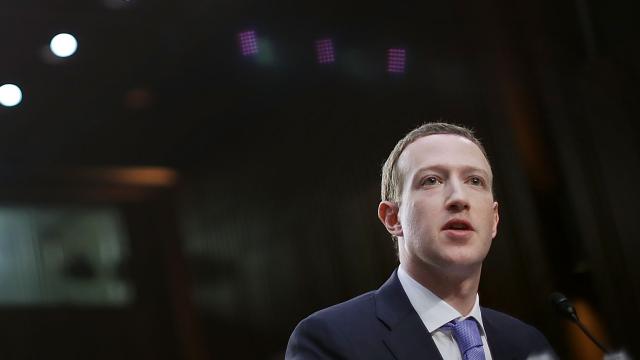Yesterday, Facebook revealed that it has terminated hundreds of pages that were engaged in what it called “inauthentic behaviour”. The latest takedown of political influence campaigns was said to involve hundreds of pages with hundreds of thousands of followers which are believed to be tied to Iran and Russia.
Social media companies are feeling pressure to show that they’re making progress in protecting the United States’ upcoming midterm elections by eliminating foreign influence intended to manipulate the public. Facebook said that yesterday’s page massacre related to accounts that mostly focused on Middle Eastern politics and pushing a Russian agenda in Syria.
Facebook outlined its findings in multiple blog posts and shared examples of some posts that the accounts shared. It said that it was first tipped off about the potential bad actors when it was contacted by security researchers at FireEye regarding a network of pages and accounts working under the banner of “Liberty Front Press”.
In its own blog post yesterday, FireEye said that this network advanced narratives that “include anti-Saudi, anti-Israeli, and pro-Palestinian themes, as well as support for specific US policies favourable to Iran, such as the US-Iran nuclear deal (JCPOA)”. It said that the intended audience was the US, UK, Latin America and the Middle East.
“We limit our assessment regarding Iranian origins to moderate confidence because influence operations, by their very nature, are intended to deceive by mimicking legitimate online activity as closely as possible,” the company wrote.
Facebook proceeded with its own investigation into Liberty Front Press and found more accounts tied to the network. In total, the company says it removed 254 pages and 392 accounts from the Facebook and Instagram networks. Based on “website registration information, as well as the use of related IP addresses and Facebook Pages sharing the same admins”, the company said it was confident the accounts were linked to Iranian state media.
The playbook is familiar by now. The pages shared memes and sentiments that a normal user with political opinions might share themselves. The intent merely seems to be to amplify the sentiments that either advance an agenda or sow discord. Examples of posts targeting US and UK audiences weren’t particularly novel or clever.
Some of the pages were created as far back as 2012, but their activity ramped up in the last couple of years and “increased their focus” on the UK and US in 2017, Facebook said. CEO Mark Zuckerberg told reporters on a conference call that 813,000 accounts followed at least one of the pages that have now been removed.
The company emphasised that, under US sanctions on Iran, it’s allowed to run an internet service in the country but it isn’t allowed to sell ads to its citizens. It said that it has found the accounts have spent $US12,000 ($16,317) on Facebook ads using US and Australian currency and the proper authorities have been notified about the transactions.
Twitter quickly followed Facebook’s lead yesterday, releasing a brief statement saying it has “suspended 284 accounts from Twitter for engaging in coordinated manipulation”. It claimed the accounts appear to have Iranian origins. We reached out to Twitter to ask if it plans to offer more information about the suspensions in the future, but we did not receive an immediate reply.
A separate network was targeted by Facebook that it claims is “linked to sources that the US government has previously identified as Russian military intelligence services”.
Russia has been the primary suspect in these types of social media propaganda efforts since the US intelligence community identified a large online campaign the country was conducting to influence the 2016 US presidential election and help then-candidate Trump. This time, the alleged Russian effort targeted a Syrian audience with “pro-Russian and pro-Assad content”.
The biggest takeaway from Facebook’s latest effort to remove accounts that aren’t transparent in their origins or affiliations is that Russia is not the only country out there using this tactic for political gain. We’re likely only seeing the beginning of an emerging style of propaganda.
Senator Mark Warner told The New York Times, “There’s no way the problem of social media manipulation is limited to a single troll farm in St Petersburg, and that fact is now beyond a doubt.”
For Facebook, this revelation gives it some red meat to throw to Congress when it appears before the US Senate Intelligence Committee on September 5. Many Republicans will likely be pleased to change the subject from Russia, a country that favours their president, to Iran, their favourite enemy.
It will also be important to watch out for any legitimate political groups being affected by the page removals. In July, when Facebook took down 32 pages and accounts it claimed had “inauthentic” origins, at least one genuine American protest group was furious to find its event page had been deleted simply because one of the bad actors Facebook targeted was involved with its creation.
With significantly more accounts being deleted this time around, the odds of more collateral damage are high.
